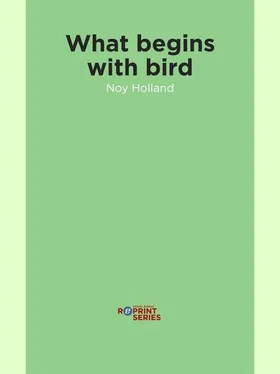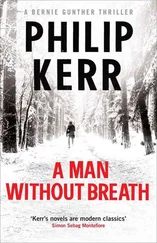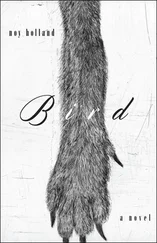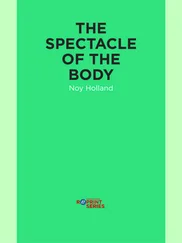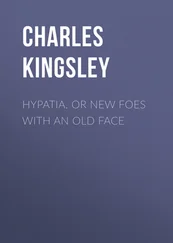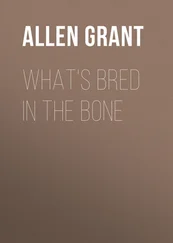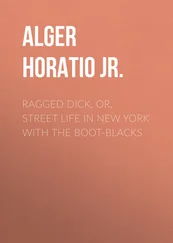Noy Holland - What begins with bird
Здесь есть возможность читать онлайн «Noy Holland - What begins with bird» весь текст электронной книги совершенно бесплатно (целиком полную версию без сокращений). В некоторых случаях можно слушать аудио, скачать через торрент в формате fb2 и присутствует краткое содержание. Год выпуска: 2015, Издательство: Dzanc Books, Жанр: Современная проза, на английском языке. Описание произведения, (предисловие) а так же отзывы посетителей доступны на портале библиотеки ЛибКат.
- Название:What begins with bird
- Автор:
- Издательство:Dzanc Books
- Жанр:
- Год:2015
- ISBN:нет данных
- Рейтинг книги:3 / 5. Голосов: 1
-
Избранное:Добавить в избранное
- Отзывы:
-
Ваша оценка:
- 60
- 1
- 2
- 3
- 4
- 5
What begins with bird: краткое содержание, описание и аннотация
Предлагаем к чтению аннотацию, описание, краткое содержание или предисловие (зависит от того, что написал сам автор книги «What begins with bird»). Если вы не нашли необходимую информацию о книге — напишите в комментариях, мы постараемся отыскать её.
, once again finds her pushing the boundaries of language and rhythm with her writing. Delving into family relationships, frequently with female protagonists, Holland’s writing develops a tension, both in the situations written of, and in the writing itself.
What begins with bird — читать онлайн бесплатно полную книгу (весь текст) целиком
Ниже представлен текст книги, разбитый по страницам. Система сохранения места последней прочитанной страницы, позволяет с удобством читать онлайн бесплатно книгу «What begins with bird», без необходимости каждый раз заново искать на чём Вы остановились. Поставьте закладку, и сможете в любой момент перейти на страницу, на которой закончили чтение.
Интервал:
Закладка:
The baby was sleeping. The sisters had gone to the garden. There was flagstone around the garden. Lemon thyme bunched up between the slabs of stone. The dog lay down in the shade in the thyme and watched the girls in the garden.
The older sister said, “Listen for the baby, big dog.”
It was the older sister’s baby. It was the older sister’s dog, the older sister’s garden, beside the older sister’s house. The house was built in the sage and pine that grew on the slope of a hogback that tilted out of the plains. You could see across the plains from the garden.
“And these,” the younger sister said, “are these keepers?”
The older sister, Libby, nodded. She knelt on the flagstone and pointed.
It had been an easy birth. But it was hard still, bending. It was still hard for Libby to get herself around. “That’s heartsease,” she said, pointing. “There’s motherwort and feverfew. This is hound’s-tongue, here; rue. The rest of this is garbage.”
The beds were dusty. The dust that lifted away from the plains and the chalky dust of the concrete plant coated each leaf and bloom. The sisters knocked the dust off as they weeded; they heaped the weeds on the slabs of stone that Libby’s husband had lain around the garden.
“I’m glad you came,” Libby said to her sister.
The younger sister was Rose. She was the taller, the prettier one. She was the one their father kept moving from school to school. “Did you hear that?” Rose asked.
“What is it?”
“I thought I heard the baby.”
Libby stopped and listened. She heard the wind moving the limbs of the trees and the dog, when it let its mouth drop open, breathing. But she could not hear the baby.
“Will Daddy come see the baby?” Rose asked.
“He says so. As soon as he can.”
Rose’s shorts worked up as she weeded until her underpants showed, the elastic slack and useless. There were dusty streaks on the back of her shorts where she had wiped her hands.
“I mean it,” Libby said. “I really am glad you came. It helps me. With the baby and all.”
The dog rolled onto its back in the thyme. It showed the girls its body.
The days were growing hotter. The snowmelt was over, the runoff not plunging out of the mountains anymore.
The sisters moved on into the flowerbeds, into the bed where the iris was blooming. They had planted the iris the year before, not long after Libby married, before the baby had begun to show. It was a year winter came all at once. The girls had dug the new bed with a mattock in the falling snow, guessing at the borders of the older beds, the wasted leaves from the older bulbs the iris would bloom among. The iris had grown straight and healthily, sending up tall, sturdy stems whose blooms — this was why the sisters were digging them up now were a murky, riverish brown.
Rose chipped the dirt up, twisted her spade to pry up the roots. “I’m so thirsty,” she said. “All this digging.”
“We’ll be finished soon,” Libby said. “If we go in, we’ll wake the baby.”
Rose dropped her spade. She walked to the hose, turned the faucet open and drank until the water that had been left in the hose and been warmed by the sun ran out. She let the water, running cold, run out into the iris bed to make the bed easier to dig in.
“You can’t do that,” Libby said. “They won’t let you water when it’s dry like this.”
“Who is they ?” Rose said.
“You know.”
Rose turned off the faucet. She knelt again in the iris bed. “You know why they bring flowers to the hospital?” she said.
“Should I?” her sister said.
“Because then they don’t have to smell you.”
Rose leaned into the stand of blooms. She dipped her nose among the petals of one of the blooms, the crest and beardless falls.
It had always amazed her — that things knew when to grow. All those months in the ground in the snow , she thought, and she remembered the snow of the year before suddenly, earnestly falling. Rose had been between schools that year, their father going from job to job.
It was their father who had sent her out. He sent her to Libby with a dachshund, which Libby gave away, and with a shopping bag full of rhizomes which he guessed, in his note, were tulips. At the very least , the note read, these should keep jour sister out of harm’s way .
Libby said, “They teach you that in school, I guess.”
“I guess so.”
Rose tossed a muddy clump she had pulled free onto the heap of weeds on the flagstone. Libby squatted behind her. She picked the iris up by the handful, and the weeds, loading her arms from the top of the pile. She saw the nubs of Rose’s spine underneath her shirt, poked out from her curving back. Rose was thin, thinner than Libby had seen her get, boyish and hard. Libby, this soon after the baby, felt thick and slow and swelled still. She squatted until her knees hurt and stood up slowly behind her sister and said to the back of her head, “You didn’t have to go through with it. Nobody made you.”
“You would know, of course.”
“I’m just saying, Rose.”
Rose went on digging. “You know what’s funny?” Rose said to her sister. “They don’t even have to talk to you. They just stand around near the door.”
She swiped at her mouth with the sleeve of her shirt. “They took turns,” she said. “When Jack got tired, Daddy came limping up the hall. Don’t you think that’s funny?”
“And what did they say?” Libby said.
“Nothing. They just stood there. I was in bed, reading, filing my nails, whatever, and I would hear them. Jack came over every day. I kept thinking he would give up and say something, or that Daddy would — a word, my name, whatever. One of them or the other. I thought once that maybe one of them would come in and sit on the bed. God.”
She jabbed around in the hole she had dug with the dented nose of her spade.
“They must have said something,” Libby said.
“Sure, like, ‘Honey, it’s nothing.’ Something like that?” Rose said.
“Forget it.”
‘“All they have to do is go up in there and squirt a bit—”‘
“I said forget it,” Libby said.
“I mean weeks of it. God,” she said. “Them standing around in the hall out there eating gingersnaps.” Rose looked up at her sister. She saw her sister not seeing her, not looking. “Don’t you see?” she said.
“Not really.”
“Really?” Rose insisted.
“I don’t. I don’t understand you. I don’t see why you had to wait so long so you had to even go to the hospital and actually have to have the thing.” She was walking across the flagstone. “It’s unreasonable. It’s just a lot of meaning.”
Libby walked around behind the house. She dropped the armload of iris and weeds on the heap of limbs and clippings and scratched around on a head of a dog who followed wherever she went now and was standing at her knee. She listened for the baby. She climbed onto a stack of concrete blocks and looked through the high window. The baby was still asleep. The dog was standing behind Libby, whining, ready to spring up onto the blocks. Rose was calling the dog from the garden. The telephone was ringing. Libby listened for Rose to go into the house and wake up the baby to answer the phone. But the phone kept ringing. Rose kept calling the dog from the garden. Libby watched the baby until the ringing stopped. The baby was still asleep when it stopped.
When Libby came back to the garden, Rose said, “That was Jack, I guess.”
“What makes you say so?”
“Because I know him,” Rose said. “He was calling to make sure I got here. He always does that.”
“Well, that’s good,” Libby said.
Читать дальшеИнтервал:
Закладка:
Похожие книги на «What begins with bird»
Представляем Вашему вниманию похожие книги на «What begins with bird» списком для выбора. Мы отобрали схожую по названию и смыслу литературу в надежде предоставить читателям больше вариантов отыскать новые, интересные, ещё непрочитанные произведения.
Обсуждение, отзывы о книге «What begins with bird» и просто собственные мнения читателей. Оставьте ваши комментарии, напишите, что Вы думаете о произведении, его смысле или главных героях. Укажите что конкретно понравилось, а что нет, и почему Вы так считаете.
